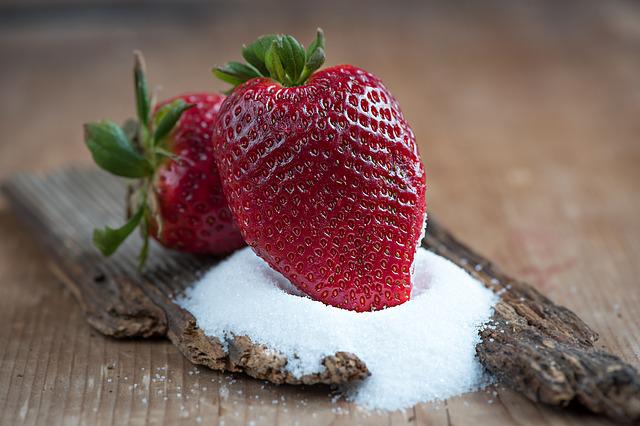Nutrition
Nutrition Facts And Basics To Help You Eat Right

You are not the only one who is overwhelmed by all the food choices involved in creating a healthy diet. Each session is complicated, and information is contradictory. Read on for some great tips on nutrition and how it can improve your life.
When selecting the best foods for a healthy diet, choose foods that are close to their untouched natural state. These items taste great, are good for you and cut down on the amount of chemicals and fat that you are eating.
Trans Fats
By now you know that trans fats are not good for you. In order to choose healthier foods, read food labels because they must disclose whether the food contains trans fats. Eating foods with a lot of trans fat can cause heart disease down the road. Trans fats are bad in two ways: they result in lower HDL (good) cholesterol, and they raise LDL – the cholesterol you don’t want.
If you have an addition to sweets and other junk food, getting out of that addiction can make a big improvement in your nutrition goals. Junk food is addictive for a reason: it is convenient and tasty. Even long after a change to healthier foods, the cravings and yearning for junk foods can linger. It is vital to recognize junk food cravings and replace them with enthusiasm for healthier alternatives.
Vitamin B-12 is essential to your body’s formation of red blood cells. People who are vegetarians or getting older in age may not get enough just from their diet. People with pernicious anemia do not properly absorb vitamin B-12. B-12 intake can be improved by taking supplements or eating certain cereal products.
You should drink plenty of water daily. Limit milk and juice consumption to a couple of meals and do not offer it all the time. Other drinks add too much sugar to your diet and fills you up before meals.
Even if you aren’t a vegan, it’s possible to have a few vegetarian meals every week and improve your nutrition. By doing so, you’ll lower the amount of animal fat intake in your diet and it will even cost less. You’ll find the meals just as tasty too!
Skipping grains is a nutrition tip that many people swear by. Historically, man did not eat grains, but subsisted on vegetables, fruits, nuts, beans and meats. Grains were not produced until much later, so they haven’t been around long. If you eliminate grains from your diet, you may feel more lively and energetic.
It is packed full of protein, with 14 grams in each 100 grams of quinoa. Quinoa is also very versatile in cooking. You can make it into a pilaf or combine it with brown sugar and apples to create a healthy breakfast treat.
In spite of how strange it seems, add a little seaweed to your diet and make your meals more healthy. Seaweeds like kombu, dulse and nori are rich in vitamins and minerals. People living close to the sea have eating these plants for many thousands of years.
Do not simply assume that the food you are eating is healthy. Seven-grain bread sounds like it is healthy, but the label tells different, there are actually no whole grains in the bread. Red the actual ingredients instead of only buying based upon product packaging.
Beets are great for a diet, but be sure to eat fresh ones rather than canned ones. Fresh beets contain a ton of fiber and minerals, but the canned variety contain lots of salt. You can steam beet greens, and you can also use beetroot within your salads.
Except for certain foods like cauliflower, try to remove white from your diet. This can help you with your nutrition goals. You will be doing away with sugars and starches. You’ll be healthier, feel better, and enjoy a diet with far fewer empty calories this way.
Keep records of your progress. If your blood pressure was high keep a diary of that as well. And if you were overweight, keep a log of pounds and inches have lost by practicing better nutrition.
A multi vitamin should supplement your diet, not replace it. You need whole foods in order to get optimum nutrition. You should stick to one multi-vitamin a day. Taking too many vitamin supplements is actually unhealthy.
The best way to keep up with the nutritional make up of your diet is to carefully record all food you eat in a food diary. Food diaries online can help you track your consumption and help you make a simple record of your foods’ nutrition. If you can see a record of your food consumption, your diet can be adjusted if needed in order to receive better nutrition.
To achieve good nutrition, all you have to do is count to five. That five is the amount of servings per day that you should be aiming for when it comes to fruits and vegetables. Even though this seems like a large amount of food, it really isn’t. As an example, a half-cup is all it takes to make up one serving of fruit.
If you are interested in nutrition, there are online articles, books and magazines that will help you with any questions. This can help you understand which foods help promote good health and which are a detriment. Everyone can gain from making better food choices.
Don’t Search High And Low, Learn About Vitamins Here

Good food is an excellent source of vitamins and minerals. The challenge is how do you get everything your body requires, if not from your diet? Getting healthy vitamins and minerals each day is key to keeping your body in good health, which may not always be found in the foods you eat. Read on to learn how to incorporate supplements into your life.
To have good bone health, be sure you have enough calcium in your diet. You must take it with vitamin D for the best effect. You can get vitamin D many ways, including sunlight, food, and supplements. Getting Vitamin D from these sources will make sure your calcium is absorbed.
Blood Cells
You must have enough iron in your body in order to help build up your red blood cells. These blood cells bring oxygen throughout the body. Women are often deficient in iron, so it is important that womens’ vitamins have proper amounts of iron. You may be iron deficient if you feel exhausted or have trouble breathing.
You can find vitamin B2, also known as riboflavin, in bananas, dairy, asparagus and popcorn. Deficiency can cause a host of symptoms, including decreased red blood cell counts and hemoglobin content, cracked lips and scaly skin. Riboflavin has been shown to help prevent cancer, carpal tunnel syndrome, cataracts and anemia.
Vitamin A is an essential antioxidant that helps increase your immunity, reduces the chance of heart disease and provides many other benefits. However, large doses can be toxic, so do not exceed the RDA for this vitamin. Carrots are one of the best sources for Vitamin A.
If you are in menopause, it is not a good idea to consume prenatal vitamins. Women sometimes take these supplements, even if they are not pregnant, to improve the appearance of their nails and hair. This is generally a good idea, but often means too much iron for women that have already reached menopause.
Vitamin C
Many fruits and vegetables are rich with Vitamin C, but citrus fruits are abundant with it. Supplements can be taken if you don’t consume enough fruits and vegetables. Vitamin C helps people prevent skin infections, gum disease, ulcers, colds and more. Also, you can reduce serious diseases like dementia with consistent vitamin C intake.
If you are an adult and you want to take children’s gummy vitamins, it would be a good idea for you to take a few of them. Because adults require higher levels of vitamins, taking one unit meant for a child is not sufficient for an adult. At the same time, you must take care not to take too many.
Talk to your doctor about which vitamins and minerals you are deficient in. If so, that is the best place to begin your supplement program.
It is important to properly research any information you get in regards to vitamins and supplements. A lot of ads are aimed at selling, not informing. Question everything. If you have doubts, schedule a talk with your doctor before choosing to take supplements.
Boost your manganese intake. It strengthens bones and boosts wound healing. It will also help you metabolize protein, cholesterol, and carbs. Whole grains, almonds, black and green tea and beans contain it. You can also find manganese supplements in vitamins stores and online.
When you take supplements, be careful. Your body needs vitamins and minerals, but you can take more than you need. This can happen with interactions as well. The results of taking too many nutrients vary depending on the type of vitamin or mineral, but an excess of some nutrients can be life-threatening.
Vitamin B12 is difficult for some to absorb, especially those rising in age. If you take a lot of it but cannot absorb anything, there is no point. It’s a good idea to have a doctor test your B12 levels so that you can figure out whether or not you need to get shots.
Eat steamed or raw vegetables. Often, the cooking process cuts back on the amount of vitamins in food. Steaming your foods is one of the best ways to preserve the maximum amount of vitamins. Flash frozen vegetables contain their high vitamin content.
Eat vegetables steamed or raw. Cooking produce leads to vitamin depletion. If you are going to cook your vegetables, steaming will bring them to a good consistency without sacrificing vitamins. You can also opt for flash frozen veggies, but again be careful when cooking them.
Speak to your family physician about the multivitamin he recommends. Credible online venues have noted which vitamins pass the test and which don’t. The FDA does not regulate vitamins and minerals, so they cannot help. This means you must research them on your own.
Even though we love eating food, it does not always give us the proper amount of nutrients we need. Sometimes, we must take supplements to ensure we get what we need. When taken appropriately and as part of a healthy diet, vitamin and mineral supplements can help improve your health. Implement these tools to maintain a healthy body.